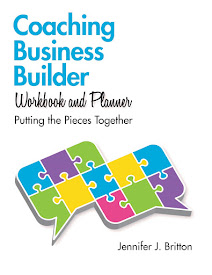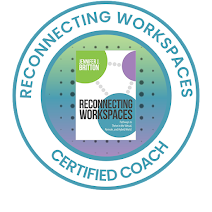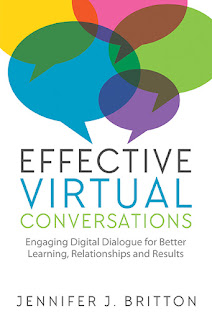Are you looking to get your own group coaching work out into the world in 2015? Looking to not have to reinvent the wheel by building onto best practices, and also wanting to create something unique for your own client groups? The last Group Coaching Essentials teleseminar series for 2014 will start tomorrow, Tuesday November 25th and will run on Tuesdays and Thursdays (no class November 27th) until December 11th. The program is approved for 6.75 CCEs with the ICF.
Over this accelerated three week period, each call you'll be breathing life into the design, approaches, marketing and implementation of your program. Calls are 75 minutes each and will be held on Tuesdays from 12:45 - 2 pm ET/New York, and Thursdays from 1 - 2:15 pm ET/New York. Short assignments accompany each session so you can end the program with a draft in hand.
We'll be exploring topics including:
* What can group coaching look like? How does it differ from 1-1 coaching?
* What best practices underpin this work?
* Exercises and Resources to incorporate into your work
* Structuring a program for your client needs (whether it is in person, virtual, corporate or public)
* Tricky Issues
* Marketing your programming - promotion, finding your sweetspot, pricing
In addition to the five group calls you will have access to me for short 1-1 15 minute lazer calls, and will also benefit from session module notes, which include a number of resource links for you to follow-up with. Cost: $425 US. Calls are recorded if you can't make a session.
I hope that you'll jump in and join us to start bringing your group program ideas to life for 2014!
Best wishes,
Jennifer
Jennifer Britton, MES, CPT, PCC, CPCC
GroupCoachingEssentials
Author of Effective Group Coaching (Wiley, 2009) and From One to Many: Best Practices for Team and Group Coaching (Jossey-Bass, 2013)
Monday, November 24, 2014
Wednesday, November 19, 2014
Three Practices for Gratitude
As we move into the year-end holiday season it’s an opportunity
to stop and pause, as well as connect
with those we might not see regularly. It
is an opportune time to be grateful. Gratitude as a practice has many physiological
and psychological benefits, including higher levels of optimism, increased
positivity, more pro-social relationships , happier relationships, and also
lower levels of toxic thoughts.
This fall I returned to school as a student and participate
in the first Positive Psychology MOOC (Massive Online Open Enrollment Course) hosted
by University of Berkeley’s Greater Good Science Center. As we explored the research around gratitude
I was not surprised about the impact of gratitude. As many of you know I spent several years working in youth
leadership development in the late 1980s and early 1990s. One of the most popular books at the time was “10,000
things to be happy about”. My own lists of “things to be happy about” became a
standard practice for my work throughout Algonquin Park and throughout my decade plus
of journaling while I worked globally with international NGOs and the UN. Through some of the more stressful moments of my leadership experiences globally these
lists remained a beacon of light and grounding for me.
As coaches, many of our clients are looking to create more
space to pause and practice gratitude. Today’s blog post looks at three
practices which focus on gratitude.
Practice #1 - Gratitude
Journal
The practice of keeping a gratitude journal has been shown
to be very effective as a practice. Keeping a journal of things you are
grateful for is a great way to also focus attention. As a practice, set aside
time once a week to write down five things you are grateful for. Use this as an
opportunity to connect with the experience, how it made you feel as well as
other details. Interestingly enough researchers have found that journaling too
frequently did not have the same impact of doing it once a week.
Practice #2 - Take It
Online - A Digital Gratitude Journal
The Center for Greater Good has launched an online digital
gratitude journal to study the impact of gratitude. Entited, Thnx4u.org, you
can access it at: http://thnx4.org/. Similar to the paper based Gratitude
Journal idea, this digital approach may
hold appeal for some of the clients you work with who prefer the online
experience.
Practice #3 -
Gratitude Letter
A third practice is to write a letter to someone you are
grateful to. Describe what you are grateful for, and plan to share this with
them, in person, by phone. The act of sharing it is as important as writing the
letter. Who are you grateful for?
On the group and team realm, these are all practices people can
undertake individually. It can also be useful to build in time during
team and group coaching sessions for sharing gratitude and
acknowledgements across the team or group.
Positive psychology and neuroscience are two key areas
coaches can benefit learning from, and sharing with their clients. What's on your learning list for 2015?
What other approaches and practices do you recommend around
gratitude? As always, please feel free to comment below.
Have a great week,
Jennifer
Jennifer Britton, MES, PCC, CPCC, CPT
GroupCoachingEssentials.com | Potentials Realized
Author of Effective Group Coaching (Wiley, 2009) and From One to Many: Best Practices for Team and Group Coaching (Jossey-Bass, 2013)
(416)996-8326
GroupCoachingEssentials.com | Potentials Realized
Author of Effective Group Coaching (Wiley, 2009) and From One to Many: Best Practices for Team and Group Coaching (Jossey-Bass, 2013)
(416)996-8326
Join us for one of our year end 2014 programs which include:
The Group Coaching Essentials teleseminar - Tues/Thurs 1 - 2:15 pm ET November 25, December 2, 4, 9 and 11, 2014 (6.75 CCEs)
The two day in person Facilitation Skills Intensive (a two day train-the-trainer): December 15-16, 2014 (Downtown Toronto)
Virtual Business Planning Retreat for Coaches - Wednesdays 4:30 -7:30 pm ET by phone: December 3 and 10, 2014.
Labels:
activities,
gratitude,
positive psychology
Tuesday, November 11, 2014
Virtual Facilitation Skills Intensive - November 25-26, 2014
Are you looking to add teleclasses, webinars or virtual group or team coaching to your mix for
2015? Looking for resources and practice to support you in acquiring and sharpening your skills as a virtual facilitator? Join Effective Group Coaching author Jennifer Britton for a two day online train-the-trainer. Since 2004 Jenn has led thousands of hours in the virtual classroom - from skype, to zoom, to bridgelines and webinars. She has packaged up her most critical tips, tools and resources in the two day Virtual Facilitation Intensive. It is a two day online train-the-trainer, where you not only learn, but get to practice facilitation in the virtual environment.
The program will be held on Tuesday November 25 and Wednesday November 26th online from 8:00 - 4:30 pm ET.
Topics we will cover:
Foundations of Adult Education andVirtual Learning
Core Virtual Faciltiation Skills
Designing Powerful Virtual Programs
Systems for Virtual Facilitation - Skype, Zoom, Bridgelines, Webinar
Tools and Resources for Facilitation (creating connection, consensus building, strategic planning, openers and closers etc)
Engagement issues
Tricky issues and Dificult Participants
plus you will have multiple opportunities to practice and get feedback on your skills.
What you will need:
Access to a computer and long distance phone throughout the two days
Skype account
We will be taking breaks throughout the two days, just as in a face-to-face environment. Further details will be sent out about other preparation to make the most of the two days.
Your registration includes:
The two-day program
A program e-manual
A dozen templates to support you in your own virtual programming work
A pre-call with me
A follow-up group call in mid-December (to be set by group)
Cost: $950 US (payable in one or two installments)
Click here to learn more and register. Space is limited to 5-6 participants.
Questions? Please email me or phone (416)996-8326
With best wishes,
Jennifer
Jennifer Britton, MES, CPT, PCC
Author of Effective Group Coaching and From One to Many: Best Practices for Team and Group Coaching
(416)996-8326
Prefer to learn in person? There are still spots in the two day Facilitation Skills Intensive program which will be held in Downtown Toronto on Monday December 15 and Tuesday December 16. More information at FacilitationSkillsIntensive.com.
2015? Looking for resources and practice to support you in acquiring and sharpening your skills as a virtual facilitator? Join Effective Group Coaching author Jennifer Britton for a two day online train-the-trainer. Since 2004 Jenn has led thousands of hours in the virtual classroom - from skype, to zoom, to bridgelines and webinars. She has packaged up her most critical tips, tools and resources in the two day Virtual Facilitation Intensive. It is a two day online train-the-trainer, where you not only learn, but get to practice facilitation in the virtual environment.
The program will be held on Tuesday November 25 and Wednesday November 26th online from 8:00 - 4:30 pm ET.
Topics we will cover:
Foundations of Adult Education andVirtual Learning
Core Virtual Faciltiation Skills
Designing Powerful Virtual Programs
Systems for Virtual Facilitation - Skype, Zoom, Bridgelines, Webinar
Tools and Resources for Facilitation (creating connection, consensus building, strategic planning, openers and closers etc)
Engagement issues
Tricky issues and Dificult Participants
plus you will have multiple opportunities to practice and get feedback on your skills.
What you will need:
Access to a computer and long distance phone throughout the two days
Skype account
We will be taking breaks throughout the two days, just as in a face-to-face environment. Further details will be sent out about other preparation to make the most of the two days.
Your registration includes:
The two-day program
A program e-manual
A dozen templates to support you in your own virtual programming work
A pre-call with me
A follow-up group call in mid-December (to be set by group)
Cost: $950 US (payable in one or two installments)
Click here to learn more and register. Space is limited to 5-6 participants.
Questions? Please email me or phone (416)996-8326
With best wishes,
Jennifer
Jennifer Britton, MES, CPT, PCC
Author of Effective Group Coaching and From One to Many: Best Practices for Team and Group Coaching
(416)996-8326
Prefer to learn in person? There are still spots in the two day Facilitation Skills Intensive program which will be held in Downtown Toronto on Monday December 15 and Tuesday December 16. More information at FacilitationSkillsIntensive.com.
Virtual Facilitation Tips 13 and 14
Today's post covers virtual facilitation tips 13 and 14. In a couple of weeks on November 25 and 26th I will be hosting a two day Virtual Facilitation Skills Intensive, a two-day online train-the-trainer for coaches and other professionals who want to sharpen their virtual facilitation skills. We'll be covering the A-Z of virtual facilitation, including giving you practice on many different platforms. You can read more about the program here and reserve your spot here.
Today we're going to look at virtual facilitation tips 13 and 14:
Virtual Facilitation Tip 13 encourages us to leave space and time for silence. Many facilitators may initially feel uncomfortable with silence on the line, and it is important to leave time for reflection, capturing thoughts and getting grounded. What is the pace of the program you are running? Is it too fast? Too slow? When you do have multiple touch-points with a group, and trust and connection is formed, you will likely find that there is less "itchyness" around pauses and silence. Having a timer or clock with a second hand at your desk is useful to really see how long it takes. If you are using a shared whiteboard, you may also want to specify how much time people have for reflection (i.e. over the next two minutes I am going to invite you to...) and share the countdown timer with them.
Virtual Faciltiation tip 14 encourges us to have a back-up for recording. Many of your group members may want to go back at a future date and listen back/watch the recording of the call. Most bridgeline services offer this option. As a facilitator you will want to know how to record, share and download the recordings. Always have a back up as sometimes the original recording does not work. My back up is usually the voice recorder on my computer system, and I file away my recordings using One Note.
For your original bridgeline recording services you may be using free ones (which still do incur a long-distance charge to dial into) such as FreeConferenceCalling.com or FreeConferencing.com, or a paid service such as Maestro Conferencing. Part of your own development as a virtual facilitator will be to explore these different options, to explore the pros and cons of each and see which ones you like. We'll be covering this in a few weeks at the Virtual Facilitation Intensive.
Have a great week,
Jennifer
Jennifer Britton, MES, PCC, CPCC, CPT
GroupCoachingEssentials.com | Potentials Realized
Author of Effective Group Coaching (Wiley, 2009) and From One to Many: Best Practices for Team and Group Coaching (Jossey-Bass, 2013)
(416)996-8326
Today we're going to look at virtual facilitation tips 13 and 14:
Virtual Facilitation Tip 13 encourages us to leave space and time for silence. Many facilitators may initially feel uncomfortable with silence on the line, and it is important to leave time for reflection, capturing thoughts and getting grounded. What is the pace of the program you are running? Is it too fast? Too slow? When you do have multiple touch-points with a group, and trust and connection is formed, you will likely find that there is less "itchyness" around pauses and silence. Having a timer or clock with a second hand at your desk is useful to really see how long it takes. If you are using a shared whiteboard, you may also want to specify how much time people have for reflection (i.e. over the next two minutes I am going to invite you to...) and share the countdown timer with them.
Virtual Faciltiation tip 14 encourges us to have a back-up for recording. Many of your group members may want to go back at a future date and listen back/watch the recording of the call. Most bridgeline services offer this option. As a facilitator you will want to know how to record, share and download the recordings. Always have a back up as sometimes the original recording does not work. My back up is usually the voice recorder on my computer system, and I file away my recordings using One Note.
For your original bridgeline recording services you may be using free ones (which still do incur a long-distance charge to dial into) such as FreeConferenceCalling.com or FreeConferencing.com, or a paid service such as Maestro Conferencing. Part of your own development as a virtual facilitator will be to explore these different options, to explore the pros and cons of each and see which ones you like. We'll be covering this in a few weeks at the Virtual Facilitation Intensive.
Have a great week,
Jennifer
Jennifer Britton, MES, PCC, CPCC, CPT
GroupCoachingEssentials.com | Potentials Realized
Author of Effective Group Coaching (Wiley, 2009) and From One to Many: Best Practices for Team and Group Coaching (Jossey-Bass, 2013)
(416)996-8326
Monday, November 03, 2014
Group and Team Coaching : Four Key Areas
This past weekend I hosted the Group and Team Coaching Intensive here in Toronto and had the
chance to work with an exceptional group of coaches. Over the weekend we took a deep dive into the best practices, skills and approaches to working with groups and teams as a coach. We looked at the benefits of group coaching, as well as expanding our toolbox with resources.
I thought that you might be interested in some of the key themes we touched on throughout the weekend including:
1. Having a variety of tools to draw on makes your work with groups and teams even richer and more powerful. AS you move through the coming weeks take stock of everything you already have in your toolbox. Placing these on a MindMap can be really useful as a one page resource, as well as seeing these laid out with possible interconnections.
2. Group coaching is a small group intimate conversation which takes place over multiple touch points. While we can being group coaching approaches into workshops, teleclasses, the real coaching conversations which take place in groups require trust and connection. This means that the smaller the group, the better. In fact, most coaching groups may only be 4-8 group members. Here's a link to one of my 2011 articles which appeared in Choice Magazine, exploring what else is important in group coaching.
3. Group and Team Coaching is an extension of the core coaching competencies. Here's a link to the International Coach Federation competency model which should underpin every group and team coaching conversation. Team and group coaching approaches are grounded in goals (as set by the clients - individual and collective (especially with teams) and provides accountability for movement and insights. Group and Team coaching is a sustained series of conversations, supporting groups and teams through the process of change.
4. Where we place attention: In a team coaching conversation we want to place emphasis on the collective focus of the team, and sometimes the individual development of each member. In group coaching it is more likely to be focusing on the individual development of each member especially if there is no bond that draws them together on a regular basis outside of the coaching.
As you consider the work you have been undertaking, or the work you are creating, what do you notice about key themes and areas which are important.
Have a great week,
Jennifer
Jennifer Britton, MES, PCC, CPCC, CPT
GroupCoachingEssentials.com | Potentials Realized
(416)996-8326
Join us for an upcoming program including:
Group Coaching Essentials teleseminar (6.75 CCEs with ICF): Fridays 10:15 - 11:30 am ET November 7, 14, 21, December 5 and 12. A resource rich look at best practices and techniques around design, implementation and marketing your programs.
Mentor Coaching Group - For ICF Credentialing - Mondays 9-10 am ET/New York: November 10 - February 10, 2015. 10 hours including 7 hrs of group calls.
Virtual Facilitation Skills Intensive - A two day online train the trainer geared for those who want to run virtual programs (webinars, teleclasses, virtual retreats etc) Tuesday November 25-Wednesday November 26.
chance to work with an exceptional group of coaches. Over the weekend we took a deep dive into the best practices, skills and approaches to working with groups and teams as a coach. We looked at the benefits of group coaching, as well as expanding our toolbox with resources.
I thought that you might be interested in some of the key themes we touched on throughout the weekend including:
1. Having a variety of tools to draw on makes your work with groups and teams even richer and more powerful. AS you move through the coming weeks take stock of everything you already have in your toolbox. Placing these on a MindMap can be really useful as a one page resource, as well as seeing these laid out with possible interconnections.
2. Group coaching is a small group intimate conversation which takes place over multiple touch points. While we can being group coaching approaches into workshops, teleclasses, the real coaching conversations which take place in groups require trust and connection. This means that the smaller the group, the better. In fact, most coaching groups may only be 4-8 group members. Here's a link to one of my 2011 articles which appeared in Choice Magazine, exploring what else is important in group coaching.
3. Group and Team Coaching is an extension of the core coaching competencies. Here's a link to the International Coach Federation competency model which should underpin every group and team coaching conversation. Team and group coaching approaches are grounded in goals (as set by the clients - individual and collective (especially with teams) and provides accountability for movement and insights. Group and Team coaching is a sustained series of conversations, supporting groups and teams through the process of change.
4. Where we place attention: In a team coaching conversation we want to place emphasis on the collective focus of the team, and sometimes the individual development of each member. In group coaching it is more likely to be focusing on the individual development of each member especially if there is no bond that draws them together on a regular basis outside of the coaching.
As you consider the work you have been undertaking, or the work you are creating, what do you notice about key themes and areas which are important.
Have a great week,
Jennifer
Jennifer Britton, MES, PCC, CPCC, CPT
GroupCoachingEssentials.com | Potentials Realized
(416)996-8326
Join us for an upcoming program including:
Group Coaching Essentials teleseminar (6.75 CCEs with ICF): Fridays 10:15 - 11:30 am ET November 7, 14, 21, December 5 and 12. A resource rich look at best practices and techniques around design, implementation and marketing your programs.
Mentor Coaching Group - For ICF Credentialing - Mondays 9-10 am ET/New York: November 10 - February 10, 2015. 10 hours including 7 hrs of group calls.
Virtual Facilitation Skills Intensive - A two day online train the trainer geared for those who want to run virtual programs (webinars, teleclasses, virtual retreats etc) Tuesday November 25-Wednesday November 26.
Subscribe to:
Posts (Atom)

















